Next Generation Taking to local Streets to Demand Action on Climate Change
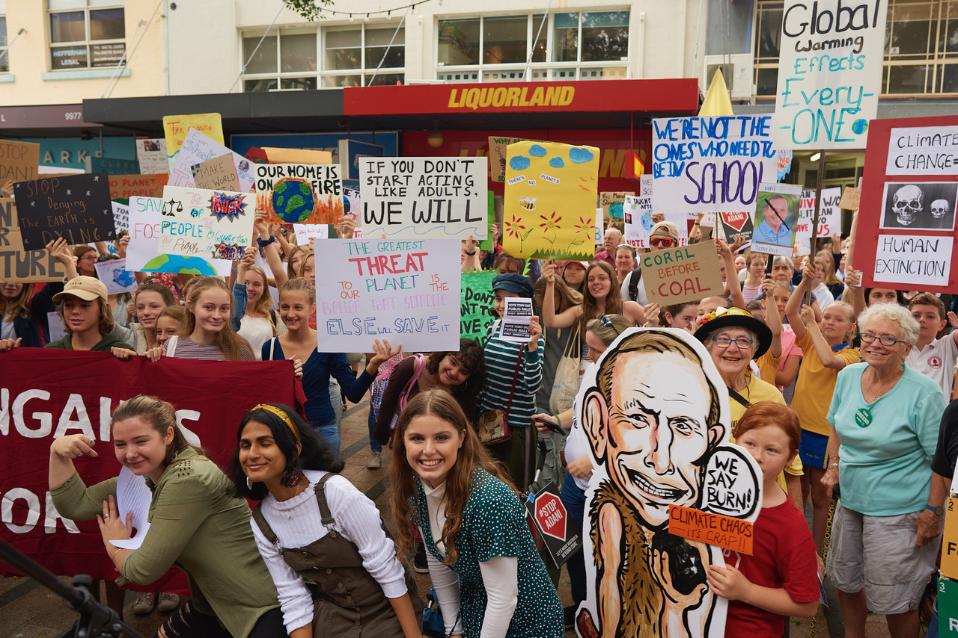
At Manly on Friday - picture supplied
At Manly, outside Warringah MP Tony Abbott's office, students and others gathered filling the area. There was a much smaller crowd outside Jason Falinski, MP for Mackellar's Narrabeen office, but he wasn't left out.
The strikes came just days after the Climate Council released it's report, ‘Climate Cuts, Cover-Ups and Censorship’, on Tuesday April 30th. The Climate Council states their report -
'provides a detailed overview of the Australian government’s approach to climate change since the election of the Liberal-National Coalition government in 2013. The period is characterised by slashing climate science funding, cutting effective climate change programs, rejecting the expert advice of national and international bodies, senior ministers making publicly misleading claims, a lack of credible climate policy, and consistently covering up poor performance.'
The Climate Council's head of research Dr Martin Rice said the government had also been known to deliberately release climate information at the busiest times of the year and block other information from being released altogether.
“The Federal Government has repeatedly tried to avoid scrutiny by releasing greenhouse gas emissions data just before Christmas or on the eve of football grand finals when fewer people are paying attention,” Dr Rice said.
"The Federal Government censored a UNESCO report on climate change and World Heritage sites, convincing the UN agency to delete all references to Australia and the Great Barrier Reef."
Other misleading claims are, the report states;
- Greenhouse gas emissions have risen for four years running. Australia is unlikely to meet its 2030 emissions reduction target according to the government’s own department. Regardless, senior ministers continue to falsely claim that emissions are going down and targets will be met.
- The government has used discredited accounting methods, for instance including land-use emissions or Kyoto “carryover credits”, which makes its record look better than reality.
The full ‘Climate Cuts, Cover-Ups and Censorship’ can be downloaded here.
A report out of Queensland universities also released this week and focusing on the four Fijian communities forced to relocate from the effects of climate change, and more than 80 communities being earmarked by the Fiji government for potential future relocation, with Fiji being a place local students have gone on holidays or with school groups or on sports tours, only further sets the resolve of those calling for better decision making about our environment.
These climate strike actions are one way those not eligible to vote yet can be seen and heard.
.jpg?timestamp=1556978567176)
At Manly on Friday - picture supplied
The strikers are not all vote-less though. Unlike previous Federal elections this one will have a high number of young voters voting for the first time, many of who are showing they will vote on issues rather than adhere to lifelong one political party allegiances.
The Australian Electoral Commission (AEC) has stated that a record number of Australians have enrolled to vote at the May 18th Federal election, with 16,424,248 people, which accounts for 96.8 per cent of the eligible voting population, exceeding the number of people enrolled to vote ahead of the 2016 federal election by around 750,000. Of these a record number of Australians aged 18 to 24 are also expected to vote on May 18th.
An estimated 88.8 per cent of eligible 18 to 24-year olds are now on the electoral roll - a 7.5 per cent increase from the 81.3 per cent enrolled ahead of the 2016 federal election. Around 70,000 18 to 24-year-olds were added to the electoral roll in the weeks leading into the close of rolls.
With over 150,000 young Australians attending the Climate Strike in March 2019, attendees making signs and banners on their weekends or attending strikes outside of school times, they are telling politicians that climate change needs to be addressed to win over these new voters and that this is not just a 'get out of school free card' for them.
Those high school students chanting on Friday will soon be eligible to vote while the primary student strikers will also soon be able to wield their own pen in state and federal elections. Their aspirations may change the political landscape more than any previous generation in this country.
“Today the youth of Australia showed our politicians that we’re not going anywhere. We’re just getting started. We will keep striking and raising our voices until our politicians show the leadership that our generation deserves. That means: 1. Stopping Adani, 2. No new coal, oil or gas and 3. 100% Renewable Energy by 2030.” said 17 year old Ruby Walker, an Inverell school striker.
The strikers’ have stated they will now turn their attention to recruiting hundreds of students to turn out on polling booths across the country for election day, calling on all adults to #VoteClimate for their futures.
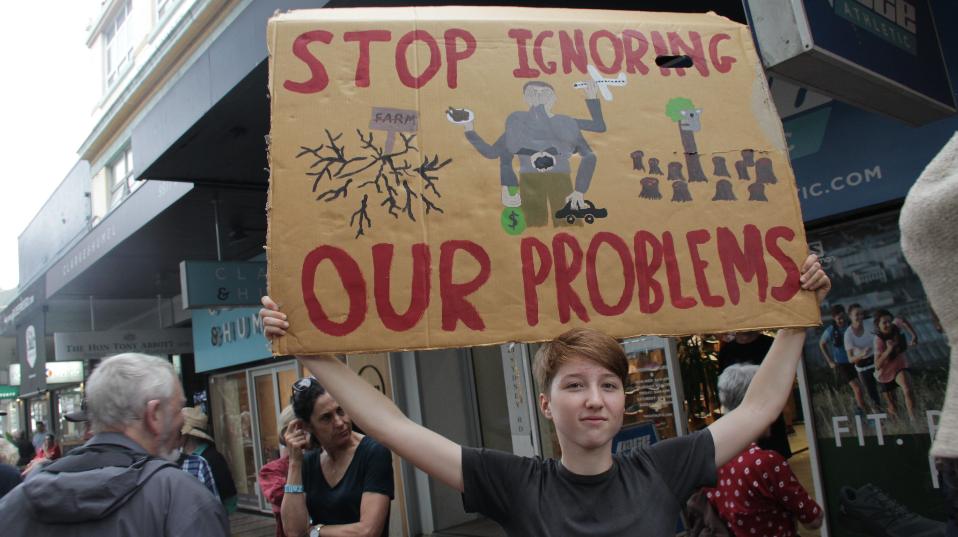
At Manly on Friday - picture supplied
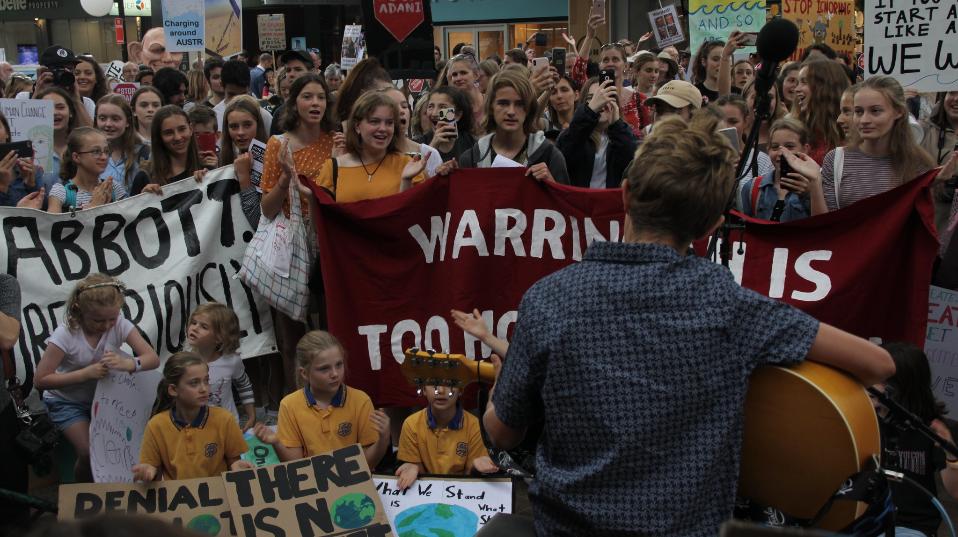
At Manly on Friday - picture supplied
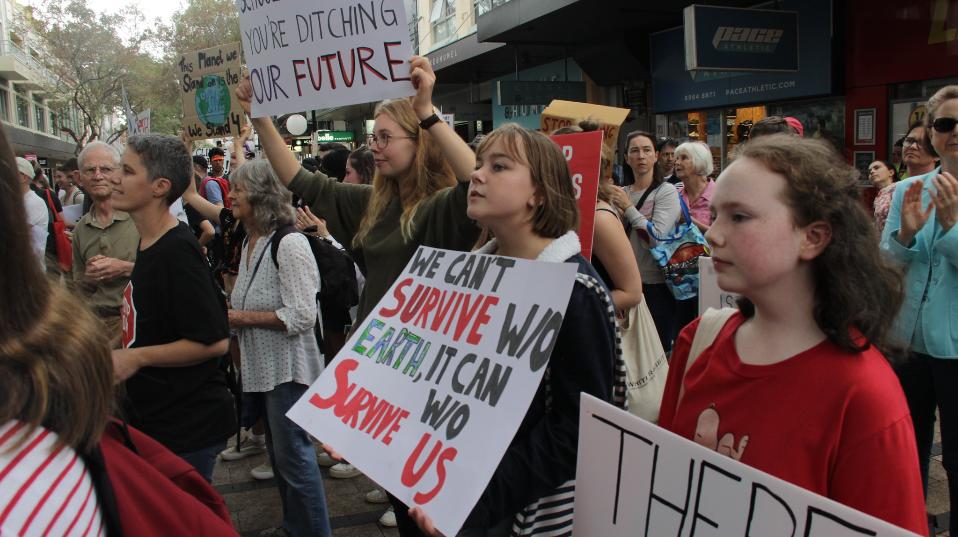
At Manly on Friday - picture supplied
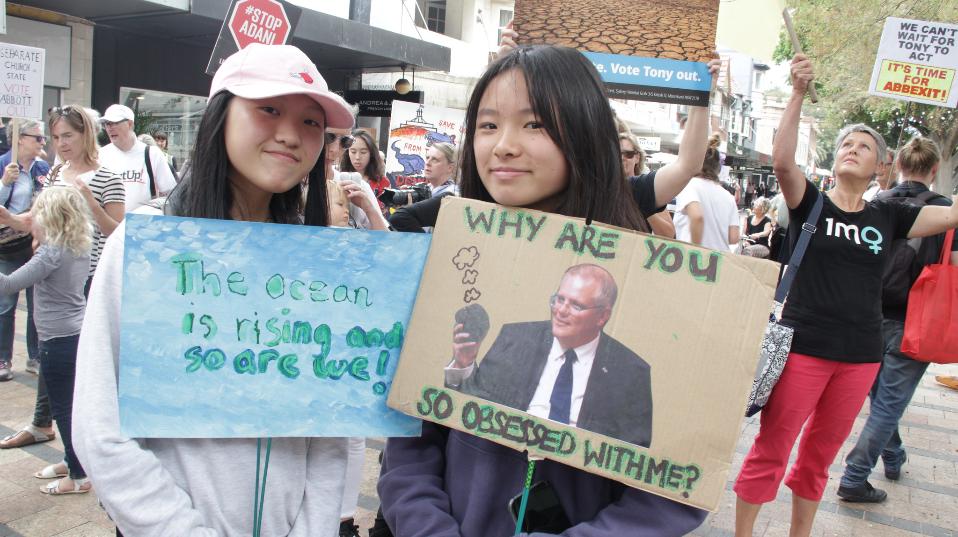
At Manly on Friday - picture supplied